
Comparisons of different culinary oils
This article was written independently by The British Nutrition Foundation (www.nutrition.org.uk), outlining the nutritional composition of different culinary oils.
All edible oils contain a mixture of different types of fat but the proportions of each vary. For health, it is best to choose oils which contain lesser amounts of saturated fat for everyday use and use those which are high in saturated fat (such as palm oil and coconut oil) sparingly. This is because saturated fat is known to raise blood cholesterol and high blood cholesterol is a risk factor for heart disease.
All edible oils contain some saturated fat but the ones which contain the least include rapeseed, linseed, walnut, sunflower and olive oil. While the essential fatty acid linoleic acid (omega-6) is present in large amounts in many edible oils, the other essential fatty acid, alpha linolenic acid (omega-3), is found in significant amounts in only a small number of oils including rapeseed, soya, walnut and linseed oils.

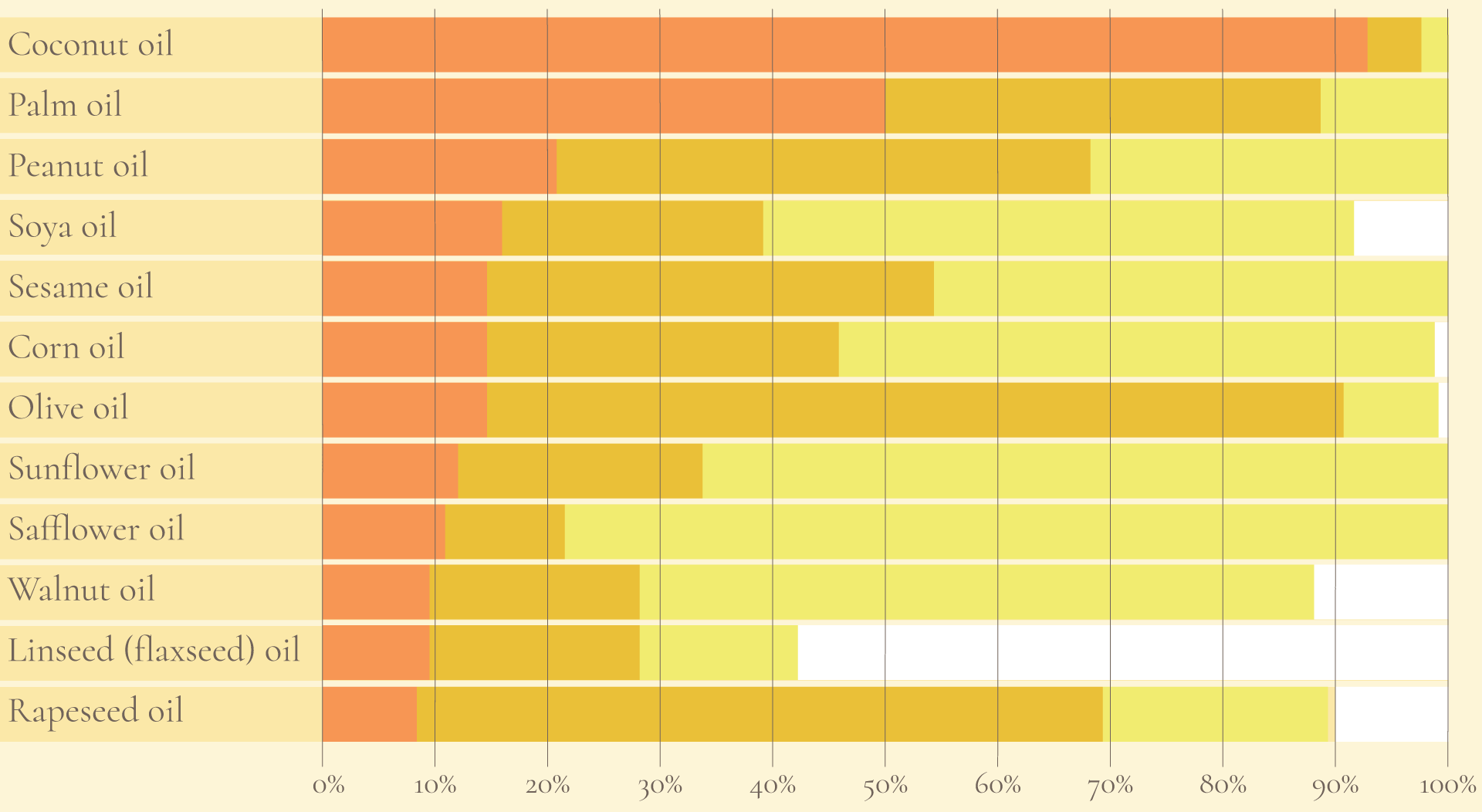
Health benefits of unsaturated FATS
In the UK, our average intake of saturated fat is above the recommended maximum of 11% of food energy set by the Department of Health. In fact, average intake in adults (aged 19-64 years) is 12.7% and it is slightly higher in older people (13.4% in those aged 65 years and over). So, we all need to reduce our intake by at least 10%. Consumption of monounsaturated and/or polyunsaturated fat in replacement of saturated fat has been shown to lower blood cholesterol. Blood cholesterol lowering may reduce the risk of heart disease.
Some scientists are concerned that an imbalance between the amount of omega 6 and omega 3 fatty acids in the Western diet is having adverse effects on our health. This hypothesis is mainly derived from observations that suggest that as intakes of omega 6 fatty acids have increased and intakes of omega 3 fatty acids have decreased over the last 150 years, there has been a parallel increase in the incidence of heart disease in the developed world.
Theories suggest that a diet with a large amount of omega 6 compared to omega 3 fatty acids might limit the production of the long chain omega 3 fatty acids known as EPA and DHA, which have anti-inflammatory properties and so are important for health. However, studies have not supported these theories and most experts believe that replacing saturated fat in the diet with omega 3 and omega 6 fatty acids, particularly long chain omega 3 fatty acids which are found in fish oil, will reduce heart disease risk.
Minor constituents of edible Oils
Some edible oils are sources of vitamin E (e.g. rapeseed, sunflower and cod liver oils) and vitamin K (e.g. rapeseed, soya and olive oils). Vitamin E helps to protect cells from oxidative damage (damage from free radicals). Vitamin K plays an important role in blood clotting and contributes to the maintenance of normal bones. Some edible oils also contain fat soluble plant pigments called carotenoids which are converted to vitamin A in the body.
Edible oils tend to contain naturally occurring plant compounds called polyphenols. The amount and exact type of polyphenols present in different oils varies depending on which plant food the oil is derived from and how the oil has been processed - for example, refined oils normally contain smaller concentrations than unrefined oils. Polyphenols can be destroyed if heated. Using an oil which is high in unsaturated fat and also rich in polyphenols on your salad could be one way of increasing your intake of polyphenols but polyphenols are also present in higher amounts in other plant foods such as fruits, vegetables and wholegrains which should form a much larger part of the diet.
Rapeseed oil
As well as containing the lowest amount of saturated fat of the oils listed above, rapeseed oil is high in monounsaturated fat and omega 3 fatty acids and contains both of the essential fatty acids (alpha linolenic acid and linoleic acid). Cold pressed rapeseed oil also contains polyphenols, plant sterols and carotenoids.

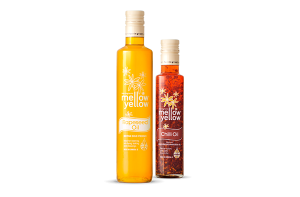 Oils
Oils Rapeseed Oil
Rapeseed Oil Chili Oil
Chili Oil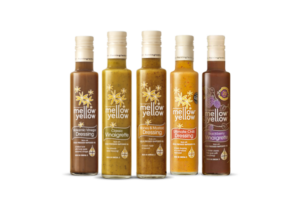 Dressings
Dressings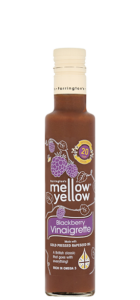 Blackberry Vinaigrette
Blackberry Vinaigrette Classic Vinaigrette
Classic Vinaigrette Balsamic Dressing
Balsamic Dressing Honey & Mustard
Honey & Mustard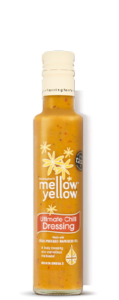 Ultimate Chilli Dressing
Ultimate Chilli Dressing


